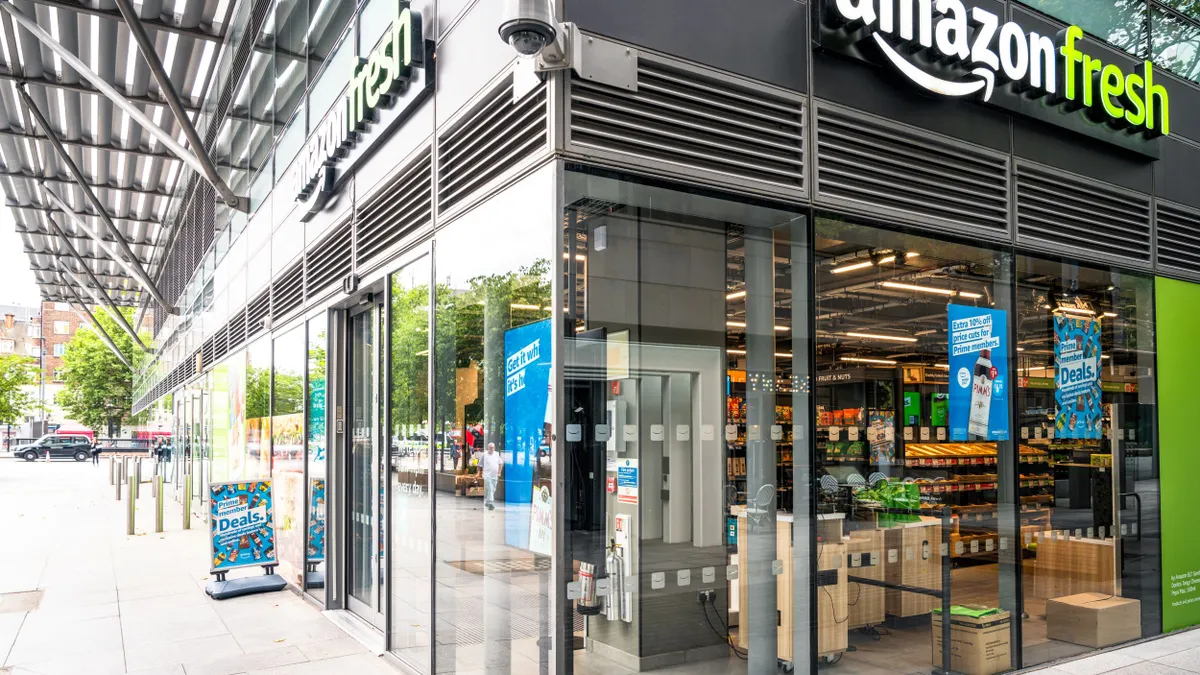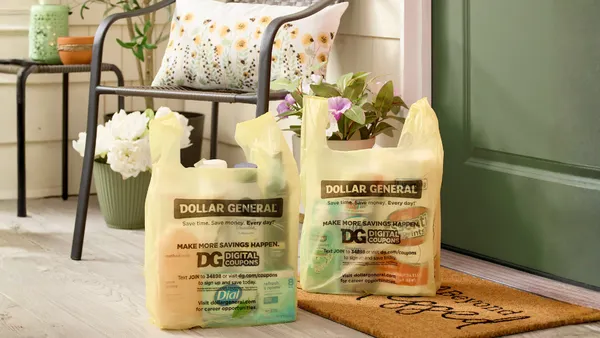Dive Brief:
- Amazon announced on Tuesday that it plans to close 14 Amazon Fresh brand stores in the U.K. and convert five into Whole Foods Market locations.
- The company plans to focus on improved online grocery offerings in the region, including the launch of same-day perishable food delivery.
- This announcement mirrors what Amazon is doing in the U.S.: shuttering grocery stores while leaning on Whole Foods and its massive e-commerce reach.
Dive Insight:
Amazon emphasized in a blog post that although it’s closing these Amazon Fresh stores, it will expand online shopping options for groceries and household essentials.
Sometime next year, Amazon plans to introduce same-day delivery for perishable groceries alongside everyday essentials and additional products on Amazon.co.uk — expanding the service that launched in the U.S. last month.
Amazon also said it’s aiming to more than double the number of Amazon U.K. Prime members who have access to three or more online grocery delivery options through its retail partners, which include Morrisons, Iceland, Co-op and Gopuff, by early 2026.
Amazon said its growth in the grocery category in the U.K. is outpacing the rest of its business there. In the first quarter of 2025, Amazon’s “everyday essentials” category grew nearly twice as fast as all other categories in the U.K.
These “very substantial growth opportunities in online delivery” and an evaluation of Amazon Fresh business operations have led to the grocer’s decision to close 14 Amazon Fresh U.K. stores. The company added that it plans to offer new employment opportunities to “as many affected employees as possible.”
Meanwhile, these closures support Whole Foods’ ongoing growth in the U.K. With the five proposed former Amazon Fresh locations, the opening of two Whole Foods locations in Greater London, the specialty grocer’s store count is set to more than double to 12 locations.
Amazon said these changes are part of its broader commitment to the U.K. In June, the company announced plans to invest £40 billion ($53.7 billion) in the U.K. over the next three years.













